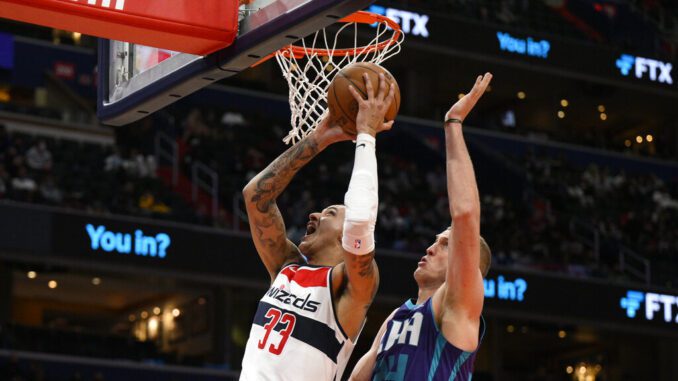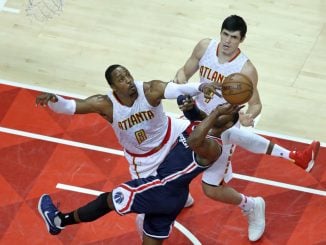
CHARLOTTE — As the NBA season nears its midway point, the Charlotte Hornets now sit directly on the playoff bubble in eighth place in the Eastern Conference standings following Monday’s 124-121 loss at Washington.
The team has spent much of its season attempting to overcome an Achilles’ heel that has shown no signs of dissipating: for as elite as the offense has been, the defense has been equally as poor. There is no getting around the raw numbers — the Hornets (19-19) have allowed a league-high 116.7 points per game despite scoring a second-best 114.9, and they currently rank dead last in opponent assists (26.3), rebounds (57) and 3-pointers made (14.4).
No other team has shown to be as unbalanced in their offensive and defensive output as Charlotte, and that type of Jekyll-and-Hyde effort has resulted in the Hornets winning only 11 of their 25 games against opponents with a record above .500.
“We’re still trying to figure it all out,” Miles Bridges said following Sunday’s loss to Phoenix in which Charlotte allowed the Suns to score 73 first-half points. “We have a lot of guys who can put the ball in the hole and once we jell it all together, we’ll be tough to beat. We have to focus on defense more because defense is where we’re struggling. If we get better at that, we can get out on transition offense where nobody can stop us.”
Bridges isn’t the only Hornet to acknowledge a deficiency on that side of the court.
“My defense all year just hasn’t been there as far as effort,” Terry Rozier said, “and I’ll be the first one to say you got to look at yourself in the mirror.”
The bulk of the defensive damage has occurred in the first quarter of games, where the Hornets have given up an NBA-worst 31.4 points. The team has generally improved in stopping opposing teams’ offenses as the games have gone on, with 29.7 points allowed in the second quarter as well as 27.4 points in the third quarter and 26.9 points in the fourth quarter.
Charlotte’s negative point differential this season has a lot to do with the lack of a true interior deterrent and an inability to get defensive rebounds — both factors have contributed to the Hornets ranking last in the NBA in opponent second-chance points. Starting center Mason Plumlee has seen brief flashes of success in the role, and PJ Washington has brought his athleticism to the table in offensive stretches, but neither player has deterred opposing players from wanting to attack the paint.
The need for another big man to fill a hole in the frontcourt has linked Hornet trade rumors to names such as Indiana’s Myles Turner and Domantas Sabonis.
Turner has become one of the league’s best shot-blocking players as of late, and Sabonis has filled up stat sheets this season with an average of 18.4 points and 12 rebounds. Either player would be a welcome addition to Charlotte’s lineup, but both would come at a large cost. As of now, it’s unclear if Hornets general manager Mitch Kupchak would want to gamble with losing any of his key playmakers that would inevitably have to be dealt if one of those two Pacers came to town.
While Charlotte’s defense has struggled on both home and road games, the team can take some solace in the fact that more than 60% of its remaining games will be played at home in the Spectrum Center.
“There’s a great opportunity right in front of us,” Hornets coach James Borrego said before admitting that his team will have to do more than just rely on the crowd’s energy to right the ship in a more consistent direction.
Charlotte has three home games in the next week — Wednesday (Detroit), Saturday (Milwaukee) and Monday (Milwaukee) — to try and attempt to inch its way up the Eastern Conference standings. A sixth-place finish would grant the Hornets their first best-of-7 playoff series since 2016 and avoid an all-too-familiar fate like the one they suffered last year when the Pacers’ 144-117 victory in the play-in tournament opener quickly ended their season.



